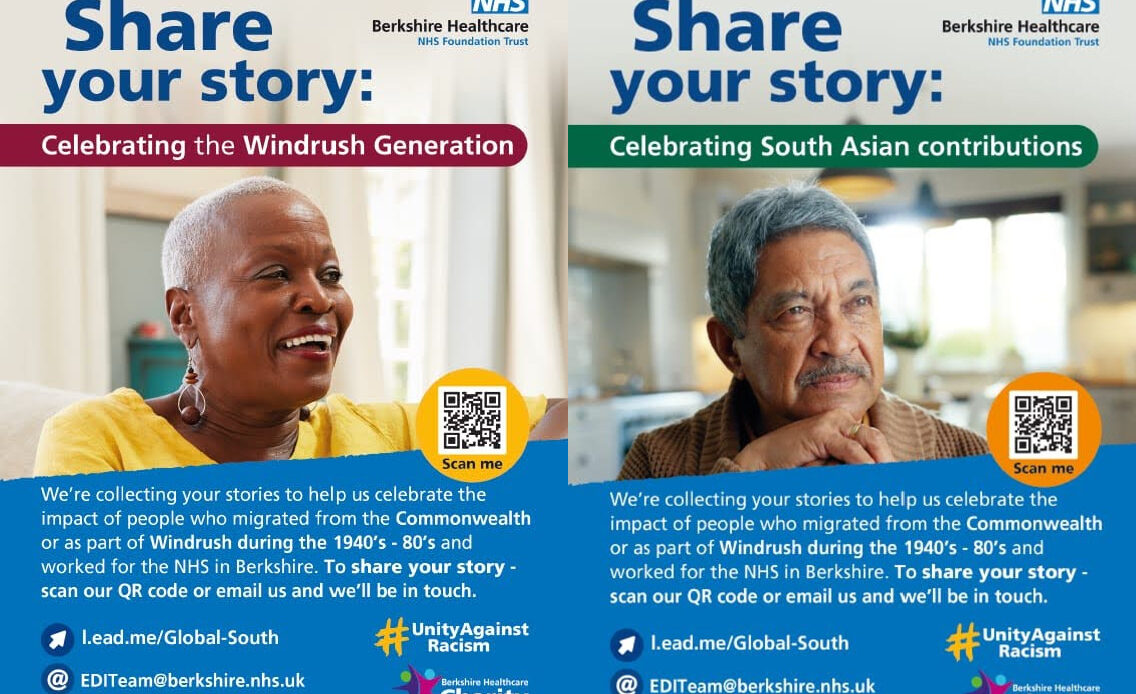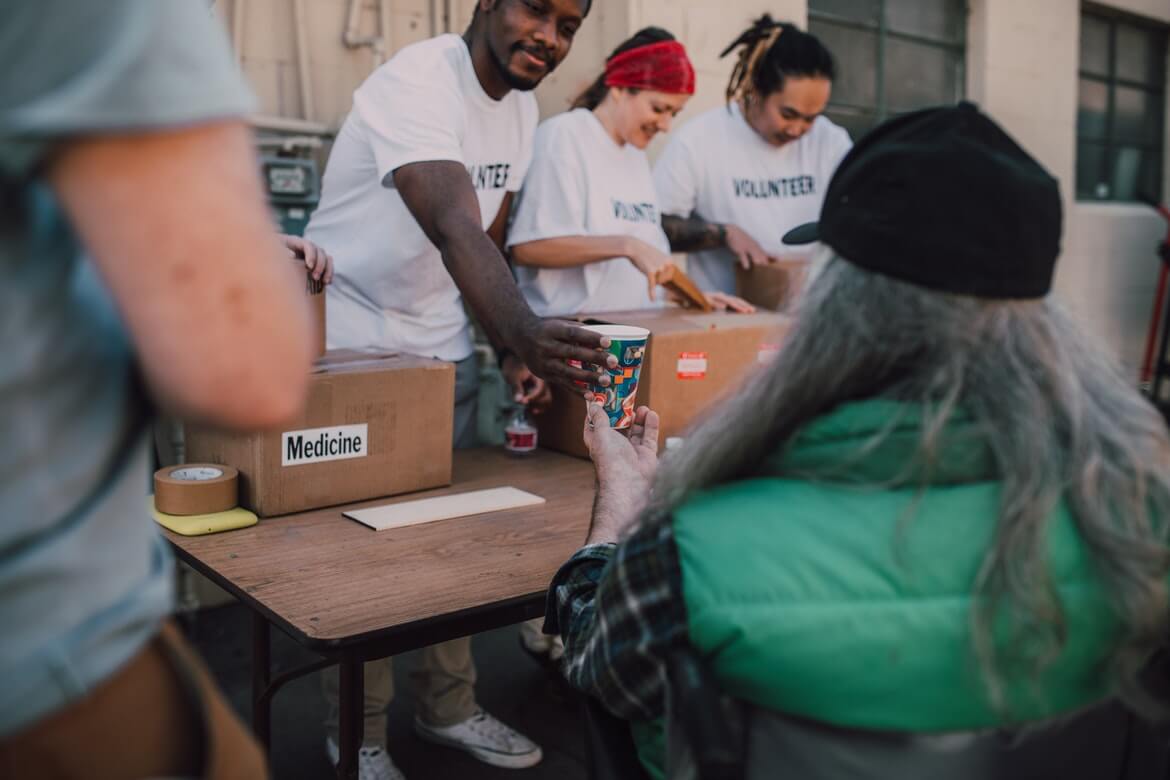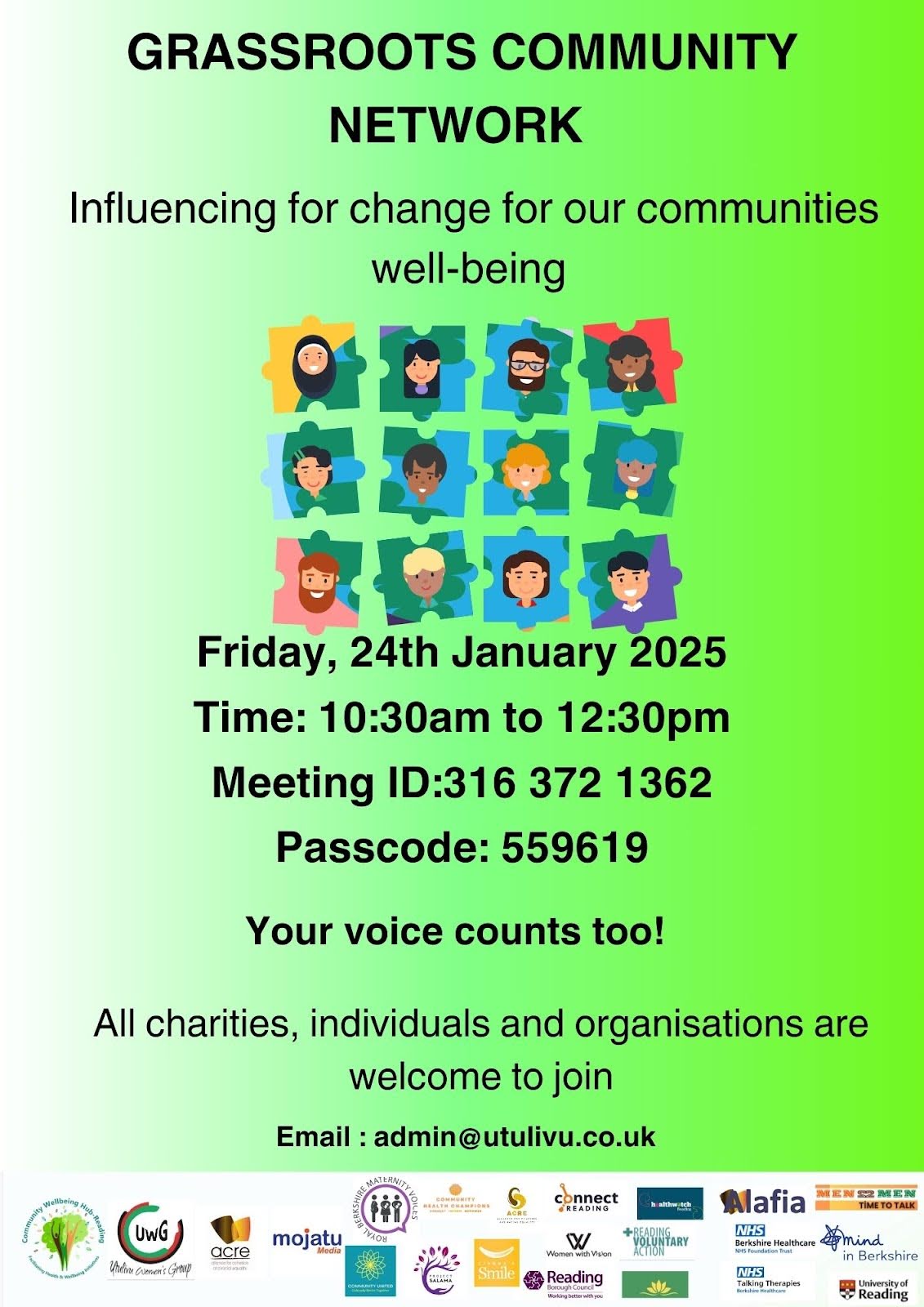Grassroot Communities Network: Progress & Impact in 2024
At the start of 2025, an inspiring online meeting brought together 33 community leaders from over 42 grassroots networks, uniting to discuss and influence change for the betterment of their communities. This event marked a significant step in narrowing the widening health inequalities gap, with a focus on amplifying the voices of grassroot communities and working collaboratively with mainstream services to empower these communities to take control of their own health in ways that best reflect their unique needs and experiences.
The Grassroot Communities Network (GCN) was launched in 2024, it seeks to bridge the gap between grassroots leaders and mainstream services. By uniting the voices of diverse communities, the network aims to ensure better representation, share resources, and foster collaboration to co-produce solutions to the most pressing challenges. The primary goal is to nurture community partnerships in health and mental health services, harnessing the strengths and knowledge that exist within these communities to create sustainable change.
The meeting began with Eva (Utulivu Women’s Group), introduced the GCN and outlined its goals and the organisations involved highlighting the importance of creating a platform for these communities to be heard and supported in their efforts to improve health and wellbeing. Eva’s introduction set the tone for the ongoing discussions that followed.
George, (ACRE) spoke next, discussing the importance of collaboration between grassroots networks and mainstream services. He explained that real change can only be achieved through mutual understanding and cooperation.
Mary, a community champion then shared insights on how the Utulivu Women’s Group’ Let’s Talk online conversations have helped her reduce loneliness and isolation. She explained that these digital meetings have not only connected communities but have also fostered shared learning and growth, reinforcing the collective commitment to tackling health inequalities.
Cecily followed with an introduction to her role and the work she has been doing to support the network’s initiatives. Her presentation provided further context to the ongoing efforts and highlighted the contributions of various individuals and organisations involved in the movement. She emphasized on how these partnerships can be a catalyst for long-term improvements within communities.
Kelly Harrison (BHFT) then presented a crucial session on cancer in people living with serious mental health conditions. Their presentation, accompanied by slides, explored the intersection of these two significant health issues and offered valuable insights on how services can better support individuals facing both challenges.
Charlotte Lister (BHFT) spoke next, discussing her work on careers education. Through her slides, she highlighted the importance of education and career opportunities in supporting mental health and overall wellbeing. Charlotte’s work emphasises the need for a comprehensive support system that extends beyond healthcare to include social and professional elements.
Joe Wafula’s presentation focused on the use of art in mental health support, as well as his work as a Suicide First Aider. He discussed how creative expression can serve as a therapeutic outlet for those struggling with mental health issues, and the importance of having trained responders within communities to provide immediate support during a crisis.
Titch (BHFT) then shared his research work in suicide prevention work. His talk offered practical approaches to supporting individuals at risk and underscored the importance of cultivating a culture of openness and understanding within communities.
Edward Chacha reflected on how the GCN has personally helped him, sharing his journey and the impact the network has had in providing the support and resources he needed to make a difference in his own community.
Joyce (ECCI) discussed her work with young people in church settings, highlighting the significant role faith communities can play in supporting mental health and wellbeing. Her session showcased the potential of integrating faith-based support with mental health services.
Pastor Kigundu continued the discussion, offering further insights into the role of faith communities in mental health support. His talk underscored the importance of this connection in providing holistic care, particularly for individuals within marginalised communities.
Pauline concluded the session by discussing the therapy available for young people, stressing the need for accessible mental health services that reach young people early to prevent long-term issues. They offer FREE Therapy and Coaching. For more information: https://time2heal.directory
Karla (BHFT) wrapped up the speaker series with a compelling session on anti-racism work do join the CommUNITY forum, working together on antiracism in Healthcare. She emphasised the role of narrative, storytelling and shared experience in breaking down barriers and fostering greater understanding.
The meeting concluded with a vote of thanks from Cecily and Eva, acknowledging the contributions of all speakers and participants. The network reaffirmed its commitment to continued collaboration, with plans to reconvene in six weeks (28 Feb 25) to maintain the momentum and ensure sustained progress towards better health outcomes for grassroot communities.
To join GCN email: admin@utulivu.co.uk








